1952
George Dinwiddie (BBA ’37, MBA ’43), president of New Orleans Public Service Inc., becomes the first recipient of the school’s Alumni Achievement Award.
1953
Elsie Watters, assistant professor of statistics, becomes the first female faculty member of the newly renamed School of Business Administration. Watters spent 10 years on the faculty before leaving to join the Tax Foundation, a private research organization in Washington, D.C. Watters served on the staff of the foundation for 23 years before retiring in 1986.
1955
French steps down to become a vice president of development at Tulane, and Paul V. Grambsch is appointed as his successor. Keenly aware of national trends in management education and the changing needs of business, Grambsch brings a new emphasis on quantitative skills to the School of Business.
1958
Dean Grambsch acquires an IBM 650 computer, enabling the business school to become one of the first in the nation to incorporate computer-based instruction into its curriculum. Thanks in part to Grambsch’s groundbreaking efforts, the School of Business begins to attract national recognition, including attention from the Ford Foundation, which awards the school a grant of $200,000 to hire faculty and develop programs.
1960
Grambsch steps down to become dean of the business school at the University of Minnesota, and Howard G. Schaller is chosen to succeed him. Schaller, chairman of the economics department, which was then part of the business school, had worked closely with Grambsch to develop a new quant-focused curriculum. Schaller accepts the position with the understanding that his primary role will be to implement the ambitious curricular changes begun during Grambsch’s tenure.
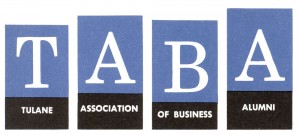 The Tulane Commerce Alumni Club (TCAC) is renamed the Tulane Association of Business Alumni (TABA).
The Tulane Commerce Alumni Club (TCAC) is renamed the Tulane Association of Business Alumni (TABA).
1962
Led by Dean Schaller, the business school faculty votes to abolish the undergraduate program and concentrate exclusively on graduate education. The controversial decision was in keeping with national trends in business education at the time. Despite the decision, the undergraduate program would not be fully phased out until 1967, when the last Bachelor of Business Administration class graduates.
1963
Having accomplished what he set out to do, Schaller steps down as dean and returns to the economics faculty. C. Jackson Grayson, who had served as associate dean under Schaller, is appointed dean.
1964
To help make up for the loss of students due to the elimination of the undergraduate program, the School of Business begins a relationship with the Army to train career officers in management and operations research. In the next decade, up to 30 percent of the full-time MBA class are military officers. Among the students during this period is Maj. Wayne Downing, who later became a four-star general and served as deputy national security adviser for combating terrorism under President George W. Bush.
1966
The newly established doctoral program admits its first two students. The program, another result of the school’s new emphasis on research, is the first in the business school’s history to focus on training prospective teachers and scholars rather than business executives.
1968
Grayson steps down to become business dean at Southern Methodist University, and Peter Firmin, longtime School of Business faculty member, is appointed as his successor. With just nine faculty members and 40 students, Firmin inherits a school in dire financial straits. Firmin guides the school through this difficult period by recruiting faculty, which in turn enables the school to grow the MBA program, and focusing on revenue enhancing initiatives, including raising tuition, increasing fundraising and creating management education programs aimed at corporate clients. One of Firmin’s first undertakings is to expand the Business School Council, which had been established during Grayson’s tenure. Firmin makes the board more geographically diverse, with members representing regional, national and international businesses.
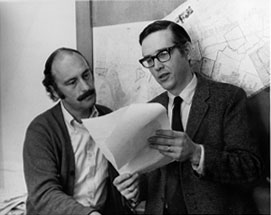
Business school faculty members Jim Murphy, above left, and Eric Vetter. Murphy served as interim dean three times.
1974
Firmin steps down to become dean of the University of Denver’s business school, and James T. Murphy, professor of finance, is named acting dean. Murphy joined the faculty in 1961 and served as interim dean three times.
1976
Harper W. Boyd Jr., professor of marketing at the University of Arkansas and one of the nation’s leading marketing experts, is appointed dean. Boyd leads the business school for two years before stepping down to return to the University of Arkansas.
1978
The undergraduate business program is reinstated and instituted as the Bachelor of Science in Management (BSM) program. The program calls for students to enter the business program as juniors after completing two years of general studies.
1979
The Tulane Association of Business Alumni (TABA) brings back the Tulane Business Forum, an event that had first been held in 1947. The first TABA forum features Exxon’s Charles W. Goodyear, First National Bank of Boston’s James M. Howell and newly appointed business school dean Walter Spencer, former chairman of Sherwin- Williams, who delivers a talk on the relationship between business and education. Spencer serves as dean just one year, stepping down in 1980.
1981
Meyer Feldberg is appointed dean of the School of Business. Prior to joining Tulane, Feldberg was director of executive education and associate dean at Northwestern University’s J. L. Kellogg Graduate School of Management.
1983
The Executive Master of Business Administration (EMBA) program is established. The intensive, accelerated curriculum enables management-level professionals to earn an MBA in 19 months.
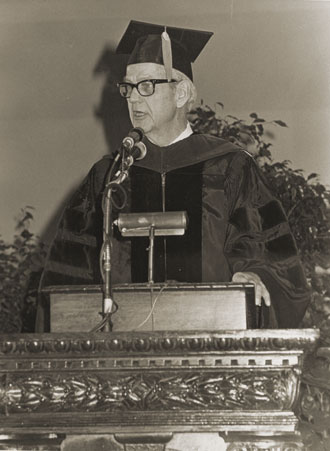
In 1984, Richard W. Freeman Sr. spoke at the naming ceremony for the A. B. Freeman School of Business.
1984
The school is officially renamed the A. B. Freeman School of Business in honor of A. B. Freeman, former chairman of the Louisiana Coca-Cola Bottling Co. and a major champion of business education at Tulane University. Richard W. Freeman Sr. (BBA ’34), son of A. B. Freeman, led an effort to raise $7 million from family, friends and business associates of the late executive to name the school in his honor.
1986
Goldring/Woldenberg Hall, the new home of the business school, is completed. The six-story, 75,000-square-foot building is the first new freestanding structure to be built on Tulane’s uptown campus in 18 years. The building is named in honor of Stephen M. Goldring and Malcolm Woldenberg, founders of Magnolia Liquor Co. and providers of the building’s anchor gifts. In addition to the Goldring and Woldenberg families, more than 2,500 other donors also contribute to the building fund.
Meyer Feldberg, who led the effort to build Goldring/Woldenberg Hall, steps down as dean to become president of the Illinois Institute of Technology. Feldberg later went on to serve as dean of Columbia Business School at Columbia University for 15 years.
1988
James W. McFarland is appointed dean of the Freeman School. McFarland, who comes to Tulane from the College of Business Administration at the University of Houston, would go on to serve 17 years as dean, becoming the second-longest-serving dean in school history after Morton A. Aldrich.
1989
Dean McFarland reinstitutes the PhD program, which had been dormant for several years, and hires John M. Trapani III as professor and associate dean. Trapani is tapped to lead the Freeman School’s executive and international programs.
The Freeman School celebrates its 75th anniversary. Albert H. Cohen (MBA ’48), former vice chairman of Price Waterhouse and a visiting professor of accounting at the Freeman School, serves as chair of the 75th Anniversary Challenge Grant Committee.

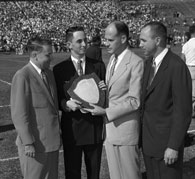
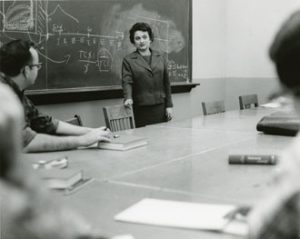
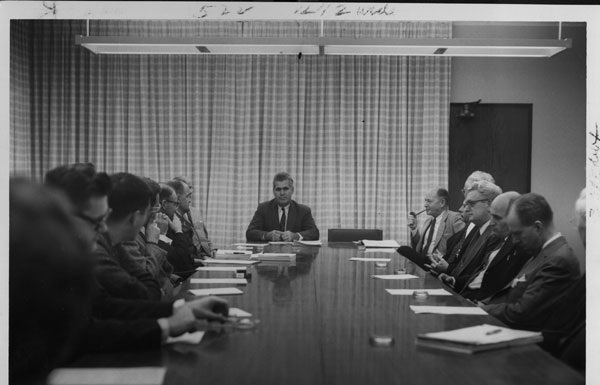
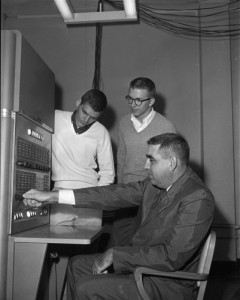
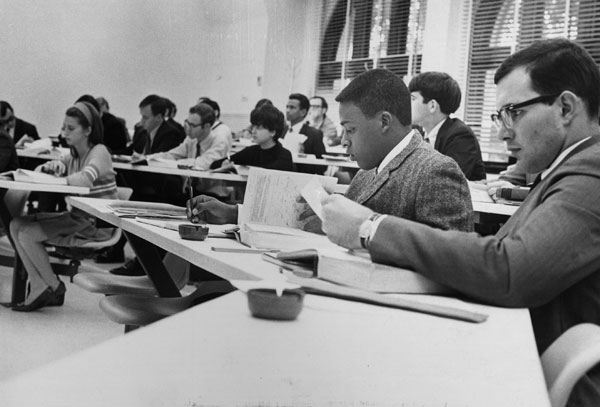
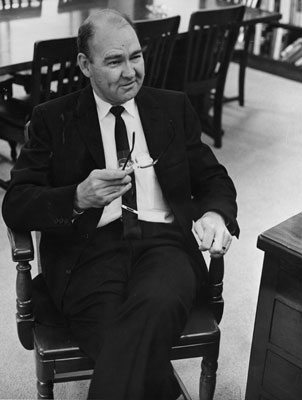
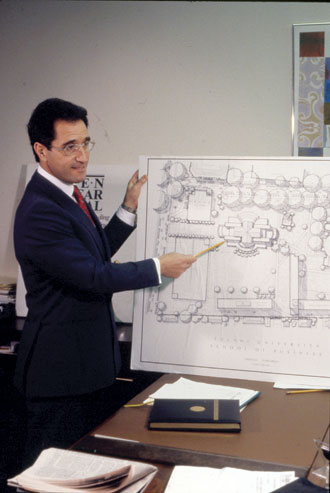

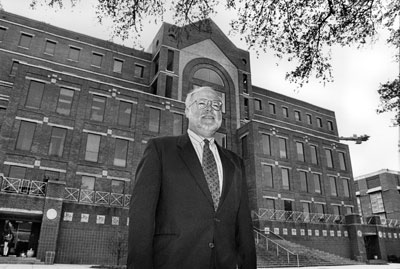


{ 0 comments… add one now }